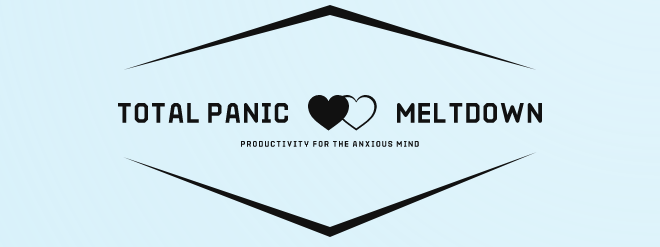Alone at home, time often slows to an agonizing crawl. My mind, bland and unstimulated, begins its midday slump around noon. Until the evening begins to roll twilight and starlight over the mountains, I often must argue myself out of taking an unnecessary nap to get through the day. Because no matter how much I sleep, this boredom/exhaustion/emptiness will continue on for as long as it wills–nothing I do seems to make a difference. I walk through glue for the rest of the afternoon, my brain made of soup and my willpower destroyed.
There’s one reason that sleeping doesn’t help: I’m not actually tired. I’m mentally exhausted. It’s not easy to tell the difference between the two, especially if your daily life is full of tough mental tasks, but the easiest way to distinguish between them is this: tiredness often goes away once you’ve slept and recharged your body. Mental fatigue may prevent you from sleeping and oftentimes, sleep cannot refill that empty well alone. Even if you do not feel physically tired, you may lack energy, motivation, and willpower due to mental overload, and these symptoms can also encourage you to lay on the couch and nap for an unnecessary amount of time.

Sleep cannot cure this state, however, and typically you will awake from your slumber even more out of it than you were before. That’s because when you are mentally exhausted, your mind doesn’t just need rest–it needs positive stimulation that will get your gears working again, inspiration to give you new ideas and help you grow, and a reason to be motivated and excited about life. If you don’t provide your mind with the things it needs to be healthy and happy, you will find yourself in this state almost constantly, which is why it’s so important to find a way out of it.
As a full-time writer, there’s rarely a moment in my life where I’m not mentally exhausted. Sometimes, it feels like my work takes so much out of me that I don’t have the energy to take care of my body and my needs, let alone to try to stimulate myself when I’m feeling bored, tired, and unable to do any work due to my lack of mental clarity. However, controlling my focus is a much more valuable asset to me than drowning in endless tedium–and improving my control of my mind will also give me more opportunities to grow my career as well.
I deal with bipolar disorder, so erratic moods come with the territory. But whenever an extreme state begins to come over me, the world often feels like it can never hold enough stimulation to satisfy me for long, let alone to inspire me to work towards my dreams and career goals. Since I work from home, most of my time is spent scouring the far reaches of the internet in a cycle of procrastination, boredom, and finally getting down to work after a day spent almost completely wasted and feeling guilty about my lack of effort.
If this sounds familiar and you’re dealing with the same frustrated routine, I’m here to help.

Why Are You Mentally Exhausted?
For those of you who don’t know what mania is like, let me give you a quick rundown. When I awake, my mind and body are both bursting with energy from the moment my eyes open, as though there is lightning sizzling within my belly. I slingshot from my bed to the coffeemaker and pound too much coffee while I browse every website I know, often filling shopping carts with things I’ll never actually purchase. Finally, the caffeine high begins to subside and all of the sudden, I am smacked in the face with mental exhaustion. Once it begins, all I want to do is go to sleep.
Because of the type of bipolar disorder I deal with, I have a low tolerance for overstimulation. I experience mania only a small amount of the time–most often, my brain is in the opposite state, trying to work its way from a fog of depression. And the depression mental exhaustion is even worse: I am tired from the moment I awake, and almost nothing can bring me joy or energy. While my meds do help to stabilize my moods a bit and keep me out of the dumps for the most part, there’s really no cure for this chemical mayhem in my brain. And believe me, I’ve tried every lifestyle change in the book–very few things work or even make a difference at all.

Other reasons that people may be burdened with mental exhaustion include: general stress, work trouble, mental health issues, relationship problems, burnout, financial issues, etc. This state can be caused just about anything that takes up a huge amount of space/worry/anxiety in your mind, whether you’re aware of the pressure you’re putting yourself under or not.
And the less aware you are of the burden your mind is under, the more likely you’ll deal with mental exhaustion on a regular basis. Self-awareness is key–for so many years, I told myself, “I want to go to sleep,” whenever that familiar funk began to pass over me. However, lately I’ve replaced that with, “I want to do something fun,” and somehow, that almost always seems to get the right gears rolling again.
How to Bust Through Mental Exhaustion in 3 Steps

1. Stimulate Your Mind
When nothing seems to be able to stir your mind out of its depressed and dysfunctional state, it’s time to stimulate and enliven your inner world in an attempt to bust through your mental exhaustion. Everyone is stimulated by different things; for me, reading a good book, getting outside to exercise, or watching an enthralling and uplifting documentary are all easy ways to stimulate myself and get my brain out of its funk.
You may enjoy playing video games, talking to friends about a topic you both enjoy, playing music, or even going for a walk in nature and listening to the sounds of the birds in the trees. Whatever it is that gives you a little bit of mental strength, latch onto that and go after it. When you’re in a mentally fatigued state, there’s nothing better than providing yourself with some positive and uplifting stimulation.
Make a list of things that stimulate you and refer to it every time mental exhaustion kicks in–this will help you to avoid falling deep into the mentally-exhausted naptime I mentioned earlier.

2. Inspire Yourself–and Get to Work
Once you’ve brought your brain back up to baseline with some good ol’ stimulation, it’s time to get inspired. For me, I always go towards inspirational humans when I’m feeling low-energy, as they typically have the power to uplift me. I am in the process of reading Michelle Obama’s book, for instance, and her words always inspire me, especially when I’m feeling down. Elizabeth Gilbert is another woman I look up to quite a bit, and her TED talks and books always inspire the living crap out of me.
Your inspiration may not be a person–it may be natural scenery, your favorite form of media, or a topic about which you are particularly passionate. When you’re in a state of mental exhaustion, finding a positive influence will help to transform your mood and give you more energy to move forward.
Don’t just sit on that inspiration, however. When the ideas are flowing or you finally find the energy to put into the things that you love, don’t waste it–instead, get to work, using that inspiration as your fuel. Value the moments when you are able to connect deeply to your authentic self because they do not occur often.

3. Find a Reason to Be Motivated–Look Towards Your Future Goals
If stimulation and inspiration haven’t done the trick already, it’s time to look a little bit deeper into why you’re feeling so mentally exhausted. Replenishing your mental energy is not a simple task, but when you find a reason to do so, such as working on your business or upping your level in a new skill, it’s a much easier road.
I find that having a list of the goals I am working towards in front of me at all times is helpful. When I’m bored or staring off into space, I refocus my energy towards that list of accomplishments that I’m targeting. While I may not be able to succeed at every single one, putting the work into it is much easier when I have a concrete list of what I’m working towards pinned to my wall to look at whenever I need fuel.
Make your own list: a list of goals and aspirations that you are shooting towards and put it somewhere visible, so you can always refer to it when you’re feeling down.

A Caveat: When You Need a Mental Recharge
Sometimes, mental exhaustion can be a symptom of something much larger, such as mental illness, chronic illness, or overworking yourself to the point of complete and total burnout. In these situations, a simple “stimulate, inspire, motivate” is not going to cut it for you. You may need serious professional help, which I would advise you to get as soon as you feel ready. But if you’re not in need of a medical diagnoses and are just dealing with burnout–it’s okay to sleep all of the time. It’s okay to be lazy. It’s okay to watch TV for hours on end. Sometimes, you really just do need to rest your mind in order to recover its function.
For instance, May was perhaps the busiest month on my writing career thus far. I wrote more for clients than I have probably written in a month in my entire life, and by the end of it, I was praying for a vacation. I took about two weeks off and spent most of that time either sleeping, browsing social media, or watching Youtube videos. While I wouldn’t recommend you do this type of thing all the time, it’s important to know when you’ve reached a breaking point with your mental energy. You’re not a robot–you’re a human being with needs and it’s important that you tend to them before worrying about your career, your family, or your relationship problems.
I’m happy to say that taking that time off helped to shore up my passion and love for writing once again. I felt incredibly guilty during early June, taking so much time off, but the latter half of this month has seen an outpouring of my own personal writing due to that time off to recharge. Don’t let yourself get to a breaking point–give yourself some space and love when you truly need time to recharge your mind.

May the Inspiration Be With You
As much of the world is beginning to normalize working from home due to the global pandemic, more and more people will have to deal with self-starting and getting things done despite feeling low and depressed. As someone with mental illness, I know first-hand how difficult it can be to inspire yourself when those same four walls surround you. But just because your mind may be a bit tired doesn’t mean there’s no way forwards–stimulate, inspire, and motivate your way towards more mental energy.
The power is in your hands, friends. Go forth and be mentally energized!



















